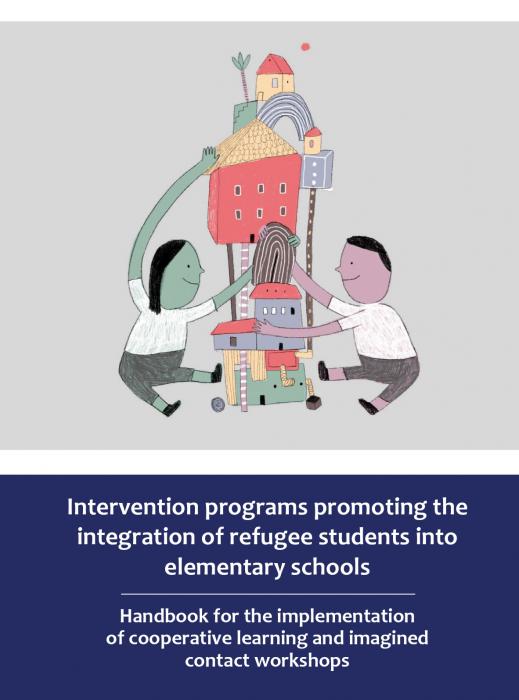Intervention programs promoting the integration of refugee students into elementary schools : handbook for the implementation of cooperative learning and imagined contact workshops
Synopsis
The aim of this handbook is to help teachers and teaching associates in schools attended by or expected to be attended by refugee children to contribute to the process of integration of refugee children in elementary schools. The handbook presents two intervention programs – one based on the cooperative learning method for schools attended by refugee children, and one based on the method of imagined contact for schools and classes that are yet to enrol refugee children. Both programs have been developed on the basis of the most up-to-date knowledge as well as suggestions, comments and feedback from teachers and teaching associates in schools that participated in the project. Therefore, we hope that this handbook and the two programs in it will be of assistance to schools in the integration of refugee children.
The materials presented in the handbook are available in the repository of the Faculty of Humanities and Social Sciences and on the website of the IRCiS project. The electronic version of the handbook can be downloaded on the same website.
Chapters
-
Contents
-
1. Introduction
-
2. What is IRCiS?
-
3. Theoretical framework of the intervention programs
-
4. Aim of the intervention programs
-
5. The intervention program for classes with refugee children -the cooperative learning method
-
6. The intervention program for classes without refugee children (imagined contact method)
-
7. Feedback after the implementation of the program
-
8. Attitudes of Croatian elementary school children towards refugee children
-
9. Summary
Downloads

Downloads
Published
Categories
License

This work is licensed under a Creative Commons Attribution-NonCommercial-NoDerivatives 4.0 International License.
